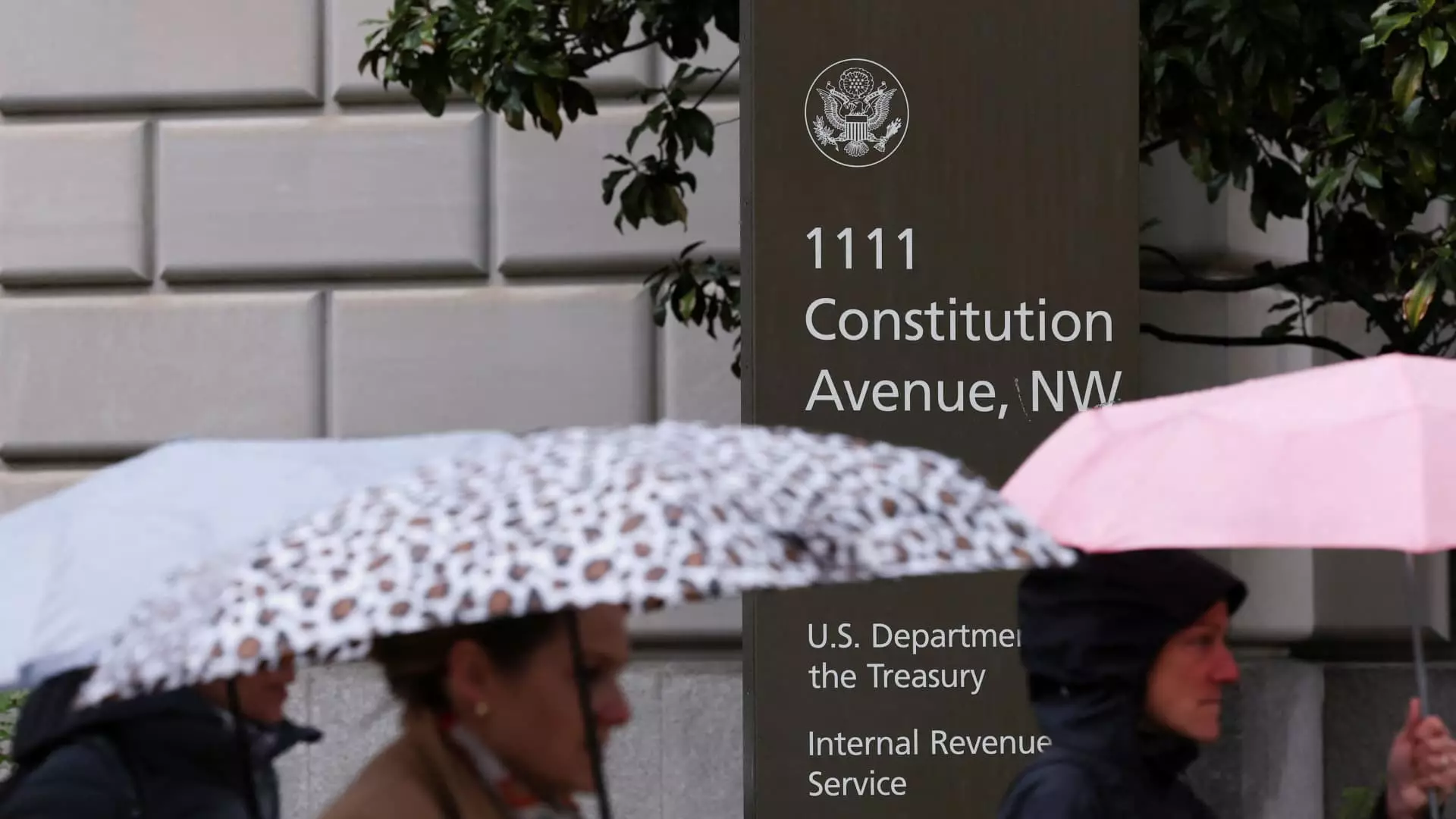In 2024, the IRS was celebrated for its ambitious plan to reclaim lost tax revenue as Congress allocated $80 billion to bolster its staff. The objective was clear: modernize the agency with young, tech-savvy professionals capable of tackling the increasingly complex landscape of tax evasion by the wealthy. Wesley Stanovsek, a promising hire in this renewed endeavor, exemplified the ambitious vision. Specializing in intricate structures like S corporations and trusts, he seemed to be the perfect fit for the High Wealth division. Yet, just months into his tenure, Stanovsek found himself on the chopping block, one of many probationary agents axed unexpectedly, leaving in his wake high-stakes cases involving millions of dollars that could have filled the Treasury’s coffers.
The loss of these agents isn’t just a drop in personnel—it’s a seismic shift that ripples through the entire fabric of tax enforcement. Stanovsek’s cases, among others, are likely to be closed without change due to the IRS’s declining internal capacity. This negligence unveils a troubling reality: an agency once poised to challenge the wealthy elite now falters, exacerbating the inequality in tax enforcement and collection.
The Erosion of Accountability
As the IRS grapples with its diminishing workforce, the long-term implications of these cuts become alarmingly clear. A significant number of audits targeting high-income individuals are left hanging in limbo, as attorneys report a shocking slowdown in proceedings. The rich, for whom tax compliance is often a mere inconvenience, are now faced with an unprecedented reality—fewer agents mean fewer audits, leading to an escalating sense of impunity among those making ten million or more annually.
This precarious situation opens floodgates for aggressive tax planning, dangerously reminiscent of the reckless schemes proliferated during the budget cuts of the late 1990s. Tax shelters designed and implemented in unregulated spaces become a growing concern, potentially depriving the government of vast sums—$160 billion in the coming decade per a Yale study, with estimates skyrocketing to $500 billion in revenue loss annually.
The ramifications of this situation extend beyond mere statistics. Former IRS agents and tax professionals echo a sobering sentiment: the rich are claiming they may no longer feel the need to file. This Pandora’s box of fiscal irresponsibility under the guise of cost-cutting raises critical questions about ethical standards and civic responsibility in a society struggling with stark wealth gaps.
AI vs. Human Expertise: The Debate Rages On
Treasury officials, including Secretary Scott Bessent, defend the agency’s drastic measures, touting AI and technology as solutions to increased efficiency. But can algorithms truly replace the nuanced judgment of human experience in tax auditing? The answer remains contentious and decidedly mixed. AI excels in identifying patterns within vast datasets, pinpointing potential discrepancies with remarkable speed. However, the exploration of these findings requires a human touch—critical thinking, follow-up questions, and, importantly, the capacity to understand complex tax law intricacies that an AI simply cannot fathom.
The risk is notable: as the IRS turns to automation, the potential for wrongful assessments rises. Taxpayers are increasingly vulnerable to the algorithmic missteps of a system lacking personal engagement. One misinformed classification could trigger dire financial consequences, turning legitimate taxpayers into unwitting victims of bureaucratic inefficiency.
Risky Business: Uncharted Territories for Wealthy Taxpayers
In this climate of uncertainty, many affluent taxpayers are embroiled in precarious situations where the IRS’s inability to engage leads to stagnation. With pending cases unresolved and appeals left languishing, transactions involving high-value assets stall, snarled by bureaucratic red tape. Clients lose business opportunities and face financial difficulties while waiting for the IRS to re-engage, highlighting the agency’s crippling inefficiency.
If history has taught us anything, it’s that budget cuts and staffing reductions often have long-lasting repercussions. The IRS’s current experience is exacerbated by its inability to provide timely guidance or resolution to complex tax situations. Tax attorneys are left metaphorically holding the bag, forced to navigate an increasingly murky landscape while their clients suffer in silence, chained to the inefficacy of an agency drifted into disarray.
As the conversation around tax reform and wealth inequality intensifies, it’s crucial to highlight that the very structures meant to hold the powerful accountable are unraveling. The IRS’s recent trajectory, marked by cuts and mismanagement, threatens to empower those wealthy enough to exploit loopholes while punishing the average American taxpayer. The stakes are incredibly high, as this evolving crisis has profound implications bound to echo for years to come, tilting the balance of economic equity deeper into disfavor.

